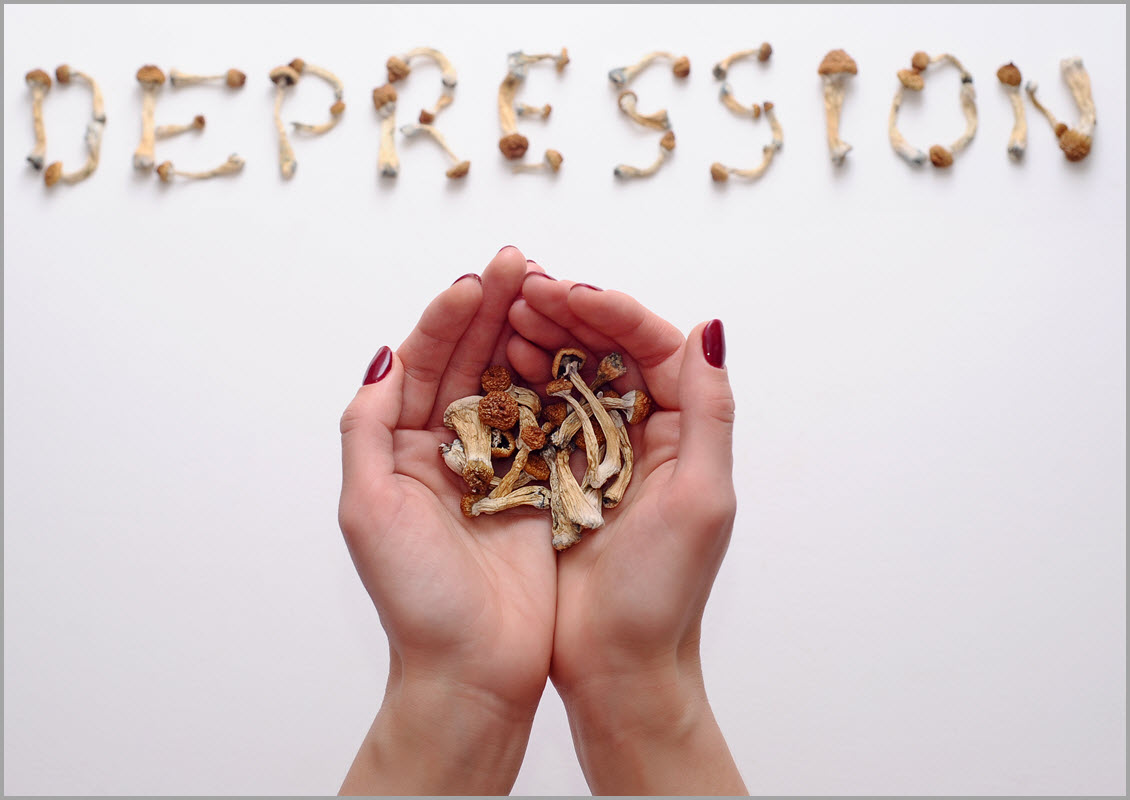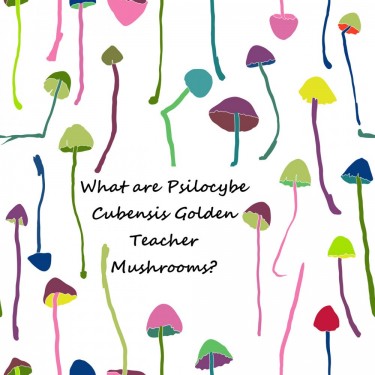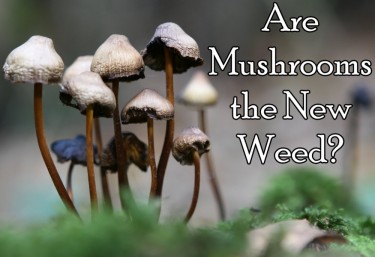
Mushroom psilocybin shows great hope for the treatment of depression and needs further testing, a new study says
A groundbreaking study found the psychedelic, also called psilocybin, to be beneficial in treating depression. This drug, found in magic mushrooms, is just as good as traditional treatments for reducing symptoms of depression.
In addition, the study suggests that psilocybin has the ability to induce happiness and bliss in people. Users may have improved their well-being and feel intensely delighted after consuming this psychedelic.
Before this small study, Prozac was the drug for the mentally ill with depression. For over 30 years since Prozac was first published, all depression and anxiety drugs developed have been mild variations of this drug.
Unfortunately, these drugs cause nasty side effects for most of the people who have used them. Some users may not even feel a beneficial effect from the moment the drug is first used, while for some other patients the drugs may stop working after a while. This study was done to find a better treatment without using the Prozac theme.
I tried to make this article as simple as possible.
This study, published in the New England Journal of Medicine, is a small, early-stage research examining the powerful effects of psychedelics. These drugs are being studied to see if they can be used to treat a range of mental illnesses. The conclusion drawn from this study shows that there is no significant difference in antidepressant effects between psilocybin and escitalopram.
In the selected group of people, however, psilocybin shows better effects than escitalopram.
The study was completed in less than two months.
The researchers emphasized that the studies were conducted on a small scale and that the study’s results require even more expert research, as well as deeper comparisons with a wider group of established antidepressants. These tests are expected to take longer to produce concrete results.
Attendees
59 people took part in the study.
The majority of the participants were white and male. Only 34% of them were female. At the start of the study, all volunteers are required to have an MRI scan. Another scan was done at the end of the experiment.
The MRI scans were used by the researchers to compare and analyze the results of the studies. To see if the psychedelics had any effect on how the brain worked.
Study details
Each of these participants received either an antidepressant that contained a selective serotonin reuptake inhibitor called escitalopram or psilocybin. Nobody was given both.
During those six weeks, participants’ mood and functioning were measured using a variety of criteria
The study guides asked the volunteers questions to get information about their mood, energy levels, appetite, and whether they had recurring thoughts of suicide.
All questions asked focused on the negative aspect of the person’s mental health. For example, they asked if the participants felt bad; They did not ask if the participants felt uplifted.
Observations
Right from the start, the participants were not told which group they belonged to. It was coincidental. This was done to blind the volunteers and prevent them from having a set expectation that could alter their responses to psychedelics.
After the dosing days, some patients were able to correctly guess what dose they were receiving based on the effects induced by the drugs.
The depression level of all participants had dropped noticeably.
As measured by criteria of social functioning and ability to feel happy, the 30 patients assigned to the psilocybin group fared better. Their mental well-being and their ability to work improved significantly. They could also express their feelings clearly.
Over time, however, the gap between the improvements in both groups began to narrow until it was no longer as significant. This means that psilocybin reacted much faster in these people’s bodies, while escitalopram took more time to produce positive effects.
Dr Robin Carhart-Harris, lead author of the study, told reporters at a news conference that psilocybin is faster onset than escitalopram with antidepressants. He also stated that psilocybin had a consistent superiority when judged by side results.
All participants involved in this study were provided with psychological support
This was designed as supportive therapy. After each volunteer receives their dose orally, they spend up to six hours on a bed. Pillows and a curated music playlist were also provided.
Two therapists were on hand to provide this psychological support through their psychedelic experience. They also made sure they didn’t interfere in their process by chatting or making gestures with the participants.
Chats with these two instructions are allowed the day after the dose is administered. During these sessions, these participants shared their psychedelic experiences.
Professor David Nutt, the study’s lead researcher, said the therapy was just as important as the drug’s effects. For this reason, it is not advisable for any mentally ill patient to self-medicate. Using the drug alone may not induce these deep antidepressant effects.
He said, “Many of these volunteers admitted they had insight into understanding the cause of their depression.”
He also told reporters that there were cases of side effects in both groups, but none were serious or life-threatening.
This supportive therapy would take six months.
Researchers are more focused on obtaining conclusive evidence of the therapeutic superiority of psychedelics and their potential to significantly improve the human state of mind.
There are so many unanswered questions about using psilocybin for mental health purposes.
Their dangers and corrosive effects were not investigated in the study, so they cannot be considered a panacea for mental disorders.
Most importantly, researchers need to know the drug’s addictive potential.
Once this research is done and positive results are obtained, countries could begin decriminalizing the use of these psychedelic substances.
PSYCHEDLICS AND DEPRESSION, READ THIS …

HOW MAGIC MUSHROOMS CHANGE THE IDEAS OF DEPRESSION!
OR..

MUSHROOMS ARE THE NEW MARIJUANA WHAT AMERICA THINKS!

Post a comment: